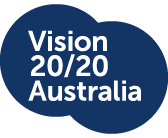As a result of excellent advocacy work by a range of IAPB members, the new World Health Organisation Universal eye health: a global action plan 2014-19 was endorsed at the World Health Assembly (WHA) meeting in Geneva in May. This is a major milestone for global eye health! The Global Action Plan was supported by Saudi Arabia on behalf of the member States of the Eastern Mediterranean region; Congo on behalf of Africa region; and Sri Lanka speaking on behalf of south east Asia region. It was also supported by Vietnam, USA, Indonesia, Zambia, India, Iran, Malaysia, Iraq, Bangladesh, Thailand, Italy, Barbados, Japan, Bahrain, Maldives, Surinam, Pakistan and long term champions of the Plan— Australia and Mexico. A total of 22 countries spoke and not a single amendment to the resolution was suggested.
There is no doubt that the endorsed Global Action Plan marks substantial progress for eye health on an international scale. The next piece in the puzzle, and a significant turning point for the Western Pacific Region, will be completion of a Regional Action Plan. To progress this goal an important consultation was held in Manila in May organised by the World Health Organisation Regional Office for the Western Pacific (WHO/WPRO). Government representatives from across the region including China, Japan, Australia, Cambodia, Vietnam, Malaysia, Mongolia, Laos and many Pacific Island Nations came together to share experiences, discuss challenges and opportunities and identify priority action areas for inclusion in a Regional Action Plan.
Together with Dr Huynh Tan Phuc, Country Manager, The Fred Hollows Foundation Vietnam, and Damian Facciolo, Regional Program Manager, International Agency for the Prevention of Blindness, Vision 2020 Australia’s CEO, Jennifer Gersbeck presented on VISION 2020: The Right to Sight and the role of international partners. Throughout the consultation it became clear that a priority for many countries was the need to conduct national prevalence surveys as data was either very old or non-existent. Participants worked through the draft Regional Action Plan and provided feedback to WHO.
Now that the Global Action Plan has been endorsed, it is anticipated that a revised draft Regional Action Plan with inputs from participants of the Western Pacific Regional Consultation will be on the agenda of the WHO/WPRO Meeting in October.
